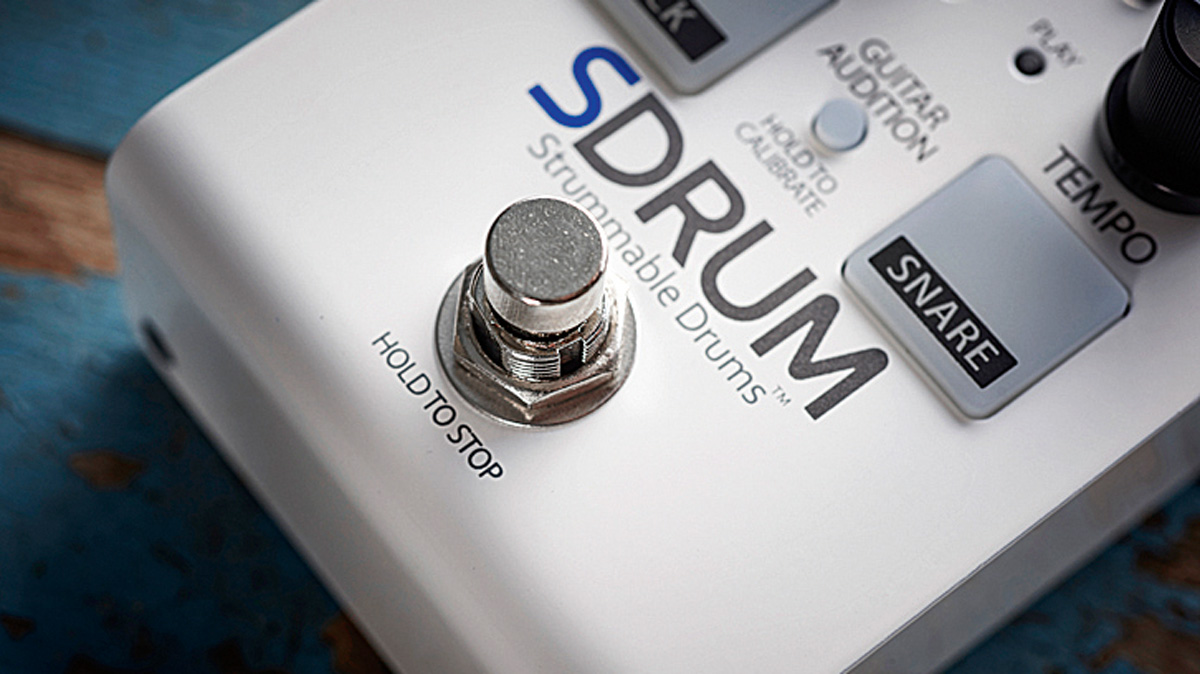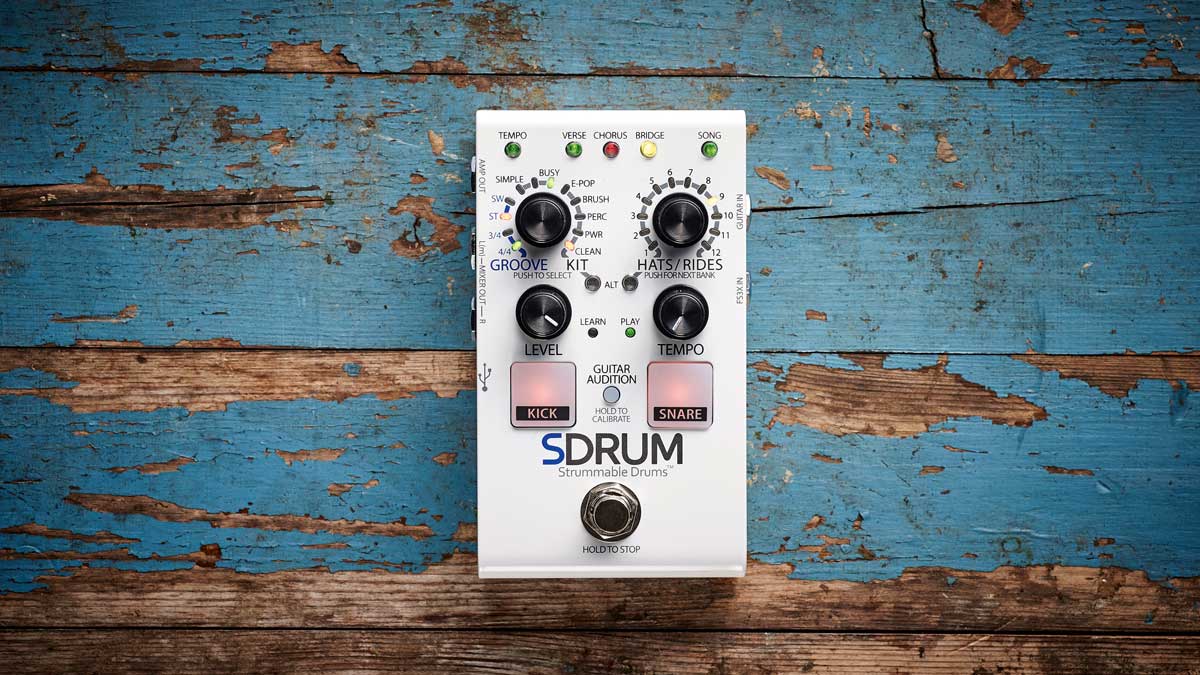MusicRadar Verdict
For players who are seeking to get quick and easy rhythm tracks down, this is an inspirational tool.
Pros
- +
An ingenious idea.
Cons
- -
Missed recording opportunity.
MusicRadar's got your back
Having blown our minds with the Trio, which generated drums and bass based on your chord progressions, DigiTech has now set out to give you more control over the beats, with your strums replacing the sticks.
The SDRUM concept is ingenious in its simplicity: hit the footswitch, strum your muted bass strings to program the kick and the treble strings for the snare. When you hit the footswitch again, the SDRUM will kick in, accurately matching the beat you played on your guitar.
A dedicated knob changes the automatically generated hi-hat/ride cymbal pattern, while another adjusts the time signature, groove and complexity of the beat, as well as the sound of the drums. Ten kits are on offer, spanning electronic, jazz brushes, Latin percussion, hard-rock/metal and clean, all taken from quality RealiTone and Digital Sound Factory samples.

Once you’ve got your beat dialled in, you can program verse, chorus and bridge parts, transitioning between them using the footswitch; holding the switch stops the current beat with a crash cymbal. The three parts can be saved as a ‘song’ in one of 36 slots.
The SDRUM is an effective unit for live players (especially given its ability to sync with DigiTech’s JamMan loopers) and, after an hour, the functionality becomes second nature. We can’t help feeling there’s a missed opportunity for recording here, though: there’s no MIDI output to trigger other samples, and the mini-USB port is for updates only. Nonetheless, for players who are seeking to get quick and easy rhythm tracks down, it’s an inspirational tool.
Want all the hottest music and gear news, reviews, deals, features and more, direct to your inbox? Sign up here.
Mike has been Editor-in-Chief of GuitarWorld.com since 2019, and an offset fiend and recovering pedal addict for far longer. He has a master's degree in journalism from Cardiff University, and 15 years' experience writing and editing for guitar publications including MusicRadar, Total Guitar and Guitarist, as well as 20 years of recording and live experience in original and function bands. During his career, he has interviewed the likes of John Frusciante, Chris Cornell, Tom Morello, Matt Bellamy, Kirk Hammett, Jerry Cantrell, Joe Satriani, Tom DeLonge, Radiohead's Ed O'Brien, Polyphia, Tosin Abasi, Yvette Young and many more. His writing also appears in the The Cambridge Companion to the Electric Guitar. In his free time, you'll find him making progressive instrumental rock as Maebe.

